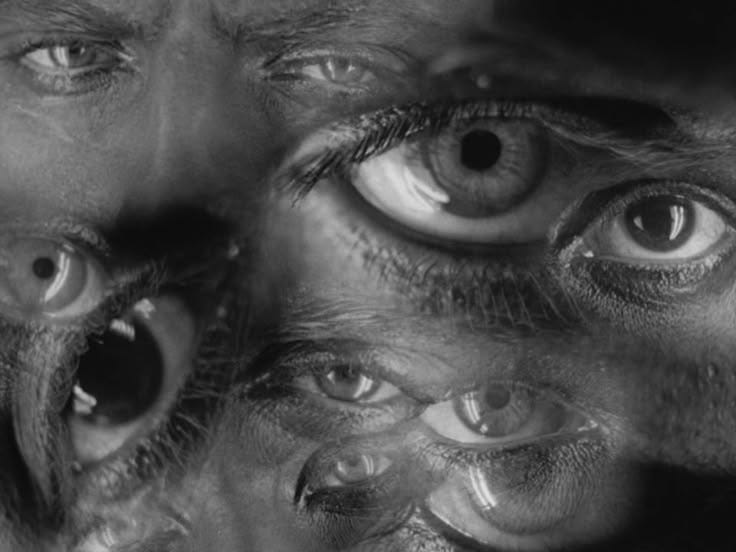why the german film industry sucks
how germany's film landscape went from bold and inspirational to dull and mysoginistic
If we go back in time, way before the rise of streaming and the commercialisation of media, even before the world wars and big blockbusters, we land in a period when Germany was Hollywood's greatest competitor. In the Roaring Twenties, German cinema thrived, producing films that were expressionistic, creative and daring like no other country. Pictures like “Das Cabinet des Dr. Caligari”, “M- Eine Stadt sucht einen Mörder"or “Nosferatu” immensely shaped the horror genre leading to contemporary directors such as David Lynch or Tim Burton taking inspiration from the German classics. But German cinema of that era not only revolutionized the horror genre, it also birthed one of the most influential science fiction films “Metropolis", one of the first feature length sci-fi films, setting the standards by which futuristic films were visualised, judged and appreciated.
However, despite their lasting influence, these films weren't only loved at the time. Many found them extremely controversial. In the 1920s Variety wrote about the German film industry: “it is a curious fact about many German pictures. They deal with freak stories and have no romance, being entirely of men”. Whether audiences personally enjoyed German cinema during that era or not, one thing was certain: if you sat down for a German film in the 1920s, it was going to be innovative, interesting, creative and unlike anything else being made.
“German film”, “innovative”, “interesting” and “creative” probably haven't been said in one sentence in decades. Nowadays, there are many words to describe popular German cinema, only few of them are positive. Today, modern German films are often characterised by a repetitiveness that borders on monotony. So what happened? How did one of the leading film industries go from producing bold, innovative films to drowning in a snooze fest of comedies?
The answer lies largely in history. With the two world wars the film landscape drastically changed. The film industry was nationalised and foreign films were banned. Yet people still had an immense need for entertainment. This feeling was particularly enhanced by the terror they were confronted with every day with war at their doorstep. People needed something to take their mind of the falling bombs and the lack of food. But with increasing propaganda in film, censure and the eviction of Jews, homosexuals, the political opposition etc. many creatives flew the country to pursue a career in the United States. Some of these artists being Marlene Dietrich and Billy Wilder. Both became incredibly important figures in cinema history making iconic features such as “Witness for the Prosecution”, “Touch of Evil" or “Sunset Boulevard". With Germany's best filmmakers moving to California, Hollywood became “Das Neue Weimar” (The new weimar, an abbreviation for the Weimarer Republic, a name for Germany in the 1920s), whereas Germany's film industry became increasingly insular.
While the US produced more and more interesting films, exploring different stories and genres, Germany stuck to one simple story - the “Heimatfilm". Since life in Germany post World War II was anything but easy, people craved an escape in easy entertainment. Something mind-numbing that felt like home and most importantly had a predictable happy ending. The Heimatfilme were born. They were cheap to produce and highly profitable, and the formula became so ingrained in the industry that it persisted for decades. With this repetitive concept, audiences quickly stopped being demanding and started to simply not expect much from a German film. To the audiences film was no longer a medium for challenging ideas, artistic expression or education but rather the same light entertainment. A reheated dinner that satisfies you in the moment, but reminds you of what you had yesterday and will be forgotten tomorrow.
“I don't think German films have to be heavy or intellectual the way they sometimes used to be “ - Til Schweiger (every German cinephiles mortal enemy)
Unfortunately, this mindset has come to dominate, and today's German cinema is characterised by shallow romantic comedies and clichéd narratives, consisting of the same four actors and the same two stories: A man and a woman who seem to have nothing in comparison, the guy is a dick and the woman either a nerd or super feminine; they somehow fall in love. The other possible storyline: a family member gets diagnosed with cancer and decides to go for the one last trip they always wanted to go on. Even the titles are being recycled. Since one of the most popular German films in the 80s was called “Männer" (Men), dozens of similar titles were used shortly after. So that’s how we got “Männerhort”, “Männerherzen", “Männertag", “Der bewegte Mann”, “What a man” and many more. If you want to pursue a career in film in Germany but don't wanna star in any of the “Männer" films, you will have little opportunities in Germany.
This is the reason why even in today's day and age many German talents decide to leave their home country behind and move abroad. One of these people is the famous German composer Hans Zimmer. He recently opened up about his reasons to leave Germany in an interview. His answer was simple; “there were no opportunities in Germany”. But he’s not the only one. If we take a look at the most regarded German actors, we realize they've all started pursuing an international career. Nina Hoss and Sandra Hüller - two German theatre legends - are now starring in films like Tár and Anatomy of a fall (to name some popular examples, though there are way more) making their names in international productions rather than in Germany.
At the heart of this problem is the flawed German film funding system. It is financially impossible to make a film in Germany without the German film funding. This means that film makers heavily rely on government support, giving film funding companies enormous power. They decide what is being made and also where it's being made. But the people in charge are neither film scientists, artists nor anyone with a background in film. No, the current woman solely in charge of one of the film funding companies in Brandenburg is a lawyer named Kirsten Niehuss. In the past 17 years, she alone got to decide what films are worth funding and spent over 20 Mio Euros on projects she belived were worth the money. One of them was a film called “Coming Out”. A comedy about a gay hairdresser, who realizes he’s actually not gay and falls in love with a woman. Maybe a second person in charge of the decision making would have protected us from this homophobic disaster. What qualifies her to judge the material handed to her you ask? I have no idea.
But no matter which one of the companies we look at, it is apparent that none of them take any risks or have any interest in telling interesting original stories. When the director of “Sonne und Beton” - a very successful German film - first send his script to the film funding companies he got a message back saying “we've already done a film about teenagers a few years ago that didn't work that well”.
"In den USA werden Filme wie Kunst gemacht und wie Ware verkauft. In Deutschland werden Filme wie Ware gemacht und wie Kunst verkauft." - Christoph Waltz
(In the US films are made like art and sold like a product. In Germany films are made like a product and sold like art.)
On top of the boldness lost in time, Germany’s film landscape also lost its true passion for storytelling. The funding companies are less interested in preserving culture and putting German film on the international screen and more focused on making as much money as possible. No matter what it takes.
The German film funding rather financially supports American productions such as Eternals, The Grand Budapest Hotel or Megalopolis that guarantee success than local original films. These foreign films only need to have a part of their post production located in Germany to qualify for the funding. Since the funding is only a loan, the filmmakers pay money back to the funding company if the film is a major hit. If you invest in a new Marvel or Wes Anderson film, you can be pretty damn sure you'll get your money back.
This economical interest is only further highlighted by their so called “Referenzförderung”, meaning that anyone with a previously successful film will automatically get funding for their next project. No matter the quality of the material. This system perpetuates the recycling of the same stories and actors, preventing new voices from emerging and further entrenching the status quo.
All of this causes actually good German films to film and produce in other countries. The Oscar winning film “All quiet at the Western Front” was mostly produced in Prague for example. Meanwhile, films actually made in Germany and funded by the German companies suffer from a lack of depth, creativity and risk.
So is German cinema just damned? Is there hope for this film industry? Despite this bleak picture, once you dig past names like Til Schweiger, Matthias Schweighöfer, Elyas M'Barek and finally get to names like Christian Petzold, you'll find some incredible, interesting, deeply human storytelling. But it takes some digging. You won’t see them heavily advertised or shown in theatre. If you don't search for them, you won't find them.
For German cinema to truly revive itself audiences need to demand more. Once people stop settling and paying for the mind-numbing, repetitive comedies and seek out smaller, independent projects that push the boundaries of storytelling, production company will realize what people want and change their formula. However, for this to happen, we need independent films to be made, shown and brought to our attention. The responsibility can not only lie with the consumer. People in charge need to wake up and focus on centering the art instead of the money.
If this article sparked your interest in German film, don't worry I got some recommendations coming in the next weeks. Until then, I highly recommend you check out “Systemsprenger” by Nora Fingscheidt, who recently even worked with Sandra Bullock on a film. It’s one of my personal favourite German films! If you want to know what all the fuss about the dull, repetitive comedies is about, have a go at “Männerhort” or “Verrückt nach Fixi”. You will regret it.
With lots of love, fabienne x





